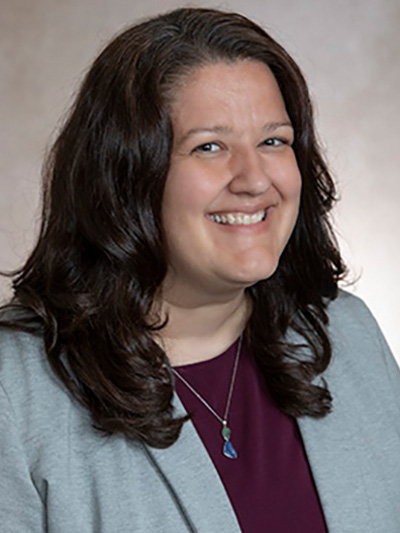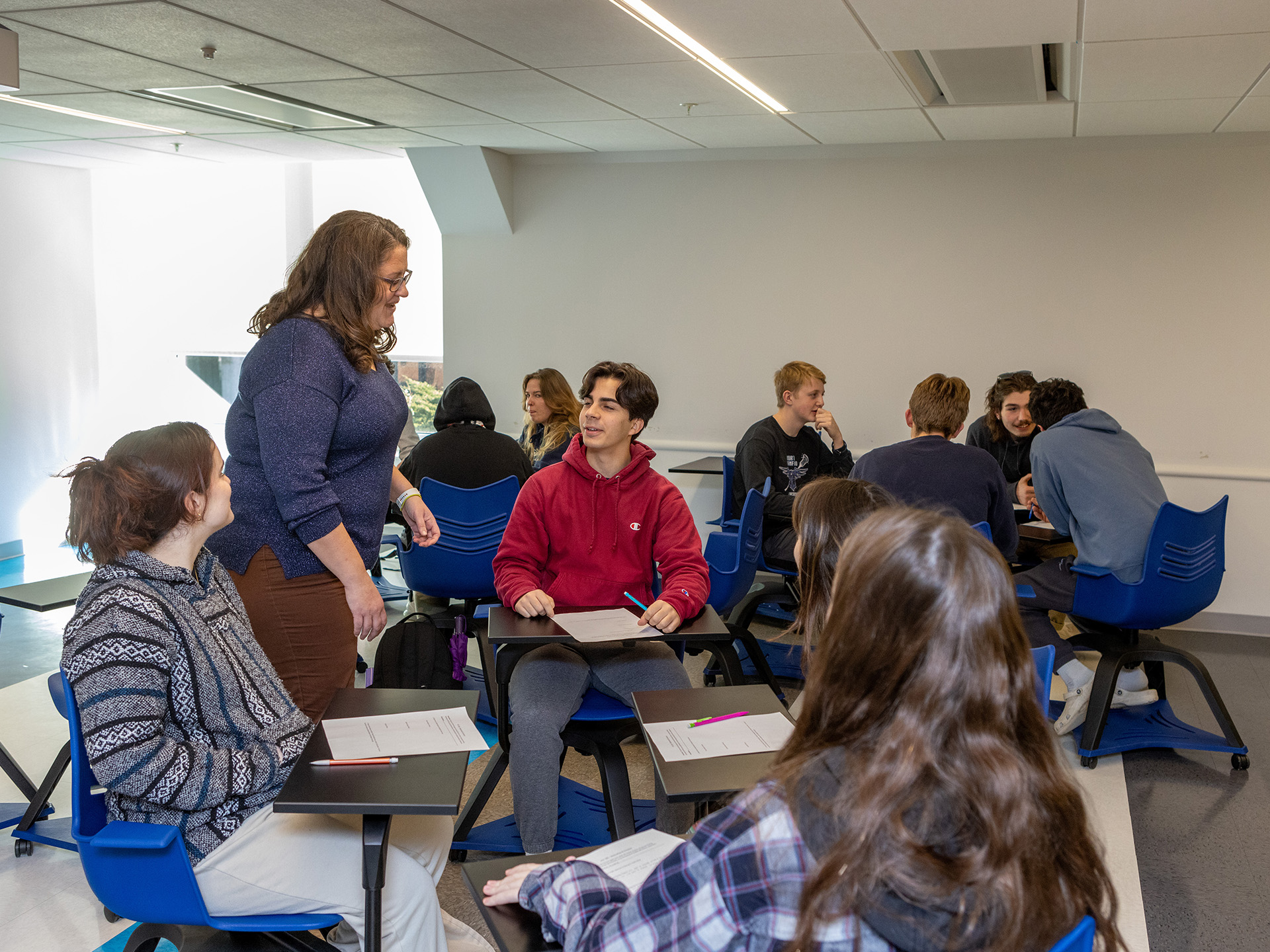- Apply
- Visit
- Request Info
- Give




 How did you end up at Eastern?
How did you end up at Eastern?“I have always loved the liberal arts. Before I came to Eastern, I was teaching at a small private liberal arts college in the Midwest. I wanted to move back to the East Coast (I was raised in Pennsylvania), and I was interested in Eastern’s public liberal arts mission and how that could make the liberal arts accessible to students who may not be interested in or able to afford private colleges. When I interviewed at Eastern, the faculty in the Psychological Science Department were so welcoming and so good at what they do that I knew I wanted to join them.”
“I love each class that I teach for different reasons. I love teaching General Psychology (PSY 100) because it reaches a lot of incoming first-year students and it’s fun every week to introduce them to a new area within psychology. I love teaching Psychology of Childhood (PSY 206) because that is my area within psychology (child development), and I get to dig into the science of how children grow and develop with students who may go on to shape future generations of children. I love teaching Research Methods II (PSY 327) because I get to work with bright upper-level students in the major as they carry out individual research projects that they have designed. I always learn so much from the fascinating variety of different topics they choose to study.”
“I am a developmental behavior geneticist. Behavior genetics is the study of how genetic and environmental factors work together to shape behavior. I’m broadly interested in gene-environment influences on factors that increase (risk factors) or decrease (resilience factors) childhood psychopathology. To study this, I measure behaviors and emotions from twins or siblings. This allows me to separate genetic and environmental factors. I am currently engaged in collecting another wave of data for my longitudinal study of sibling emotions and behaviors (called the D.U.C.K. study - Developing an Understanding of Childhood Knowledge). I have followed this sample for eight years now. I am also developing a novel experiment that tests discrimination factors in early childcare settings.”
“The students are absolutely the most rewarding thing about teaching at Eastern. Each student is different, but overall Eastern students are kind, open-minded and interested in learning new things. It’s easy to find students who are interested in going above and beyond and engaging in things like independent studies, research assistantships and teaching assistantships. These one-on-one opportunities provide me with energy and new ideas every semester.”
Students should feel the same sense of excitement about learning that professors do, and students should be able to engage with the material and draw connections to the world around them.

“I believe that learning should be exciting and open to everyone. I am successful when students feel the same sense of excitement about the material that I do, and when they are able to draw connections from what we are learning to the world around them. To achieve this, I focus on application. We can learn an important theory by applying it to a relevant and interesting problem. We can incorporate current events into our classroom. We can take our knowledge outside of the classroom and engage in experiential learning.”
“I love getting off-campus with students. In 2021 (despite the pandemic), I took three students to the Eastern Psychological Association conference in New York City so that they could present their research. In 2022, I took three students to the same conference (that year in Boston) so that they could present their research, and I also took two students to the Society for Research in Child Development in Salt Lake City, UT. It’s amazing to watch students go from having a general question about research through the process of developing specific, testable hypotheses, analyzing the data, writing the research product and then going to present it at a professional conference.”
“Psychology is broad! Many students get intimidated by that and wonder, "What can I do with a major in psychology?” The answer is — so many things! We have a one-credit class (PSY 101 - Introduction to the Major). I encourage anyone thinking about psychology to take that class. It meets once a week and does a great job explaining all the different areas within psychology and all of the careers you could pursue with a bachelor’s degree, master’s degree or doctoral degree.”
“I would encourage students to pursue a career not because it may seem like a good idea on paper, but because it excites them. I was excited to read my first psychology textbook when I was 18 years old — and I was not the sort of student who got excited about textbooks. I didn’t know how I could make a career out of it, and as a first-generation college student the prospect of pursuing something vague terrified me, but I knew I enjoyed learning about it. It’s been a long time since I read that first textbook, but I still love learning about psychology and I have fun every day doing my job.”